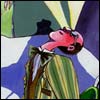I spent most of the day under the sea in the most enchanted world ever. I joined my husband and his group of tour guides at the coral reef in Eilat. It reinforced the wonder I feel for G‑d’s magnificent world.
I have no words which would sufficiently describe the most incredibly intricate, delicate, colorful and perfect sea world. The seawater is transparently clear in Eilat. The plant life is incredible in colors, shapes and textures that blow away any artist’s wildest fantasy. The exotic fish painted in striking colors and shades, striped, spotted, blotched, in varied sizes and shapes, and the tranquility and harmony, are astounding beyond belief. No art director could have dreamed up such magnificent creatures other than the original creator of heaven, earth and every living thing that inhabits the planet.
I am awestruck by the astonishing beauty that exists in this still-silent world that man has not yet managed to ravageI am awestruck by the astonishing beauty that exists in this still-silent world that man has not yet managed to ravage. It seems to me that although G‑d created man to look after this world and be a partner in creation, when we look around us or flick the remote control or turn on the radio, for the most part, we hear of destruction on every level of society, be it in family life, government or between nations. But this could not have been G‑d’s intention. When we observe the harmony in the natural world and the ecosystem that exists in nature, it seems to beckon us to build a human world that reflects and lives in harmony and synchronization with the pulse of the natural world.
The natural world, the birds, sea creatures and animals preceded the creation of man. This seems to point to an inherent message. Yes, G‑d created man to conquer nature and use its resources for his survival. Yet the prohibition to exploit or misuse nature is blatantly clear from the laws in the Torah: the dietary requirements of keeping kosher apply to both natural and animal products; the sensitivity required towards “the tree of the field” that it is forbidden to destroy; the obligation to feed one’s animals before one eats and provide them a day’s respite every week—all are examples of how G‑d expects us to treat His creation.
If we would only slow down and pay attention to the beauty that surrounds us, we could not help but marvel and thank the Creator for bothering to create such an incredulous magnificent physical world. We are called human beings, not human doings. We tend to value ourselves and others by how much we achieve, how many items we can check off our “to do” list, how much we can amass. If we would only slow down and fill each day with a few human “being” moments.
If we would only slow down and fill each day with a few human “being” moments
Today, take just a few minutes to stop and gaze at a flower on your way to work, or in your living room or in your garden. Just stop and notice its color and texture, and pay attention to the detail, the way the petals bend, the stem and the shape of the leaves, the center of the flower, the delicate fragrance. Allow yourself to be in wonder. Then while you are eating supper with your family, look into your child’s laughing eyes, or your husband’s, and become aware of the depth and music of his soul.
Be present in this very moment. Slow down, breathe, connect and marvel at the Divine reflected in the smallest and most intricate detail of life, be it in the sublime sea world, a magnificent leaf, a busy ant or your very own child. Slow down, savor and experience fully (consciously) whatever is right in front of you in this very moment. Be filled, just for this moment, with gratitude for what G‑d has placed in your world.
Have a “wonder”-full day!






Your comments about our natural resources and treasuring them is so close to my heart. Thank you for writing such a beautiful message. If only many people could "take the time." I wish I would, so your reminder might help me do just that.